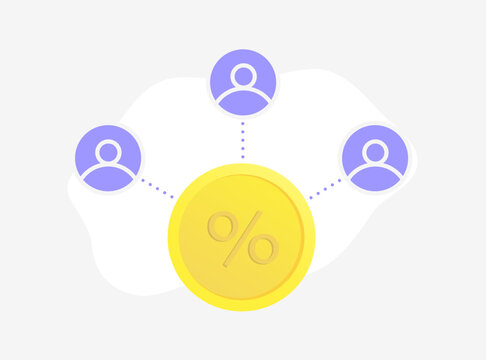Want to know what Yep search engine is and how it actually works? Let’s delve into the details and explore it.
What is a Yep search engine?
Yep is a new search engine developed by Ahrefs, aiming to compete with Google. It focuses on privacy and rewarding content creators.
Unlike Google, Yep collects minimal user data and aims to share 90% of ad revenue with the creators of the content you see in search results.
According to Yep, their mission is to support high-quality content. It’s still under development, but you can try it out and see how it works.

Why is it called Yep?
There are 2 theories behind name Yep:
Theory 1
Believe it or not, “Yep” doesn’t have a specific meaning. The creators, Ahrefs, chose it for being short, easy to remember, and inspired by the “yip yip” from Avatar cartoons to make their sky bison fly.
Theory 2
There’s no official reason behind the name “Yep” for the search engine. However, “yep” itself is a casual and informal way of saying “yes”. This could be reflecting Yep’s focus on a quick and user-friendly search experience.
What is unique about the Yep search engine?
Yep search engine focuses on two key things: privacy and creator compensation.
- Privacy: Yep stands out for being a privacy-focused search engine that doesn’t track your searches for targeted ads.
- Revenue Sharing: Yep offers a unique 90/10 revenue share model, aiming to give 90% of ad revenue back to the creators of the content you find through Yep.
Let’s understand both features of Yep in detail.
Privacy
Yep prioritizes user privacy by default. Unlike traditional search engines, they don’t track your search history or store personal information.
While they do use minimal data like search terms and general location to improve results and security, this data isn’t used to target you with ads and isn’t personally identifiable.

Revenue-Sharing
Yep search engine flips the traditional search engine model on its head with a creator-friendly 90/10 revenue-sharing model.
This means creators whose valuable content appears in your Yep searches are directly compensated with a whopping 90% of the ad revenue generated
It’s fairer than how most search engines operate, where creators often don’t get much money for their content.
How Yep works?
Yep’s inner workings are still under wraps as it’s a new search engine. However, we can glean some details based on what they’ve revealed yet:
Privacy-focused Crawling:
Yep likely uses web crawlers to scour the internet for information, similar to Google. But unlike Google, they might anonymize this process to avoid collecting user data about browsing habits.
Indexing and Ranking:
Yep likely builds an index of webpages based on their content and relevance to search terms.
Their ranking algorithm might prioritize factors like keyword relevance, website quality, and user engagement, but without heavy reliance on personal search history.

Minimal User Data:
Yep likely uses minimal user data like search terms and general location for two reasons:
- Improve search results by understanding what users are looking for.
- Maintain security measures.
Creator Identification:
Yep likely has a system to identify creators associated with the content displayed in search results. This could involve partnerships with websites or creators directly registering their content.
Ad Revenue Sharing:
Yep search engine likely uses an ad network to display targeted ads alongside search results. However, instead of keeping most of the revenue, they aim to share 90% with the creators who’s content is featured.
It’s important to note that this is a simplified explanation, and Yep’s actual workings might be more complex.

What is Ahrefs’ goal with Yep?
Ahrefs’ ultimate goal with Yep seems two-pronged:
Challenge Google’s Dominance:
Ahrefs, a SEO toolset company, might be aiming to introduce much-needed competition in the search engine space.
Yep’s focus on privacy and creator revenue sharing could attract users who are dissatisfied with Google’s data practices and lack of creator compensation.
Attract Investment or Acquisition:
In 2019, Ahrefs CEO mentioned that Yep might target a larger company like Microsoft for potential acquisition.
A successful Yep could be attractive due to positive public sentiment and its ability to challenge Google’s market share. This could lead to a lucrative buyout for Ahrefs.

Will Yep help SEO experts and Businesses?
Yep has the potential to help SEO professionals and businesses in a few ways, but also comes with some uncertainties.
Potential Benefits of Yep search engine:
New Traffic Channel:
Yep opens a new doorway to drive traffic to websites. SEO professionals will need to learn Yep’s ranking factors and adapt their strategies to optimize websites for Yep search results.
This could involve technical SEO adjustments, content optimization for Yep’s specific algorithm, and potentially building backlinks within the Yep ecosystem (if it develops one).
Content Quality focus:
Yep’s focus on rewarding creators with a 90/10 revenue share could incentivize the creation of high-quality content.
This aligns perfectly with SEO best practices that emphasize valuable and informative content. Businesses that prioritize high-quality content creation could potentially benefit from increased visibility and organic traffic on Yep.

Data Diversification:
With Yep in the mix, SEOs can broaden their understanding of the search landscape.
By analyzing ranking factors and user behavior on Yep, they can potentially diversify their SEO strategies beyond just focusing on Google’s algorithm.
This could lead to more robust and adaptable SEO approaches.
Potential Drawbacks of Yep search engine:
Limited User Base (For Now):
As a new player, Yep likely has a smaller user base compared to Google.
While ranking highly on Yep initially might be easier due to less competition, the overall traffic a website receives from Yep might be lower in the short term.

Unveiling the Algorithm:
One of the biggest challenges for SEOs is the veil surrounding Yep’s ranking algorithm.
Without a clear understanding of how Yep prioritizes websites, it’s difficult to optimize content definitively.
SEOs will need to stay updated as Yep reveals more about its ranking factors and adapt their strategies accordingly.
This could involve ongoing experimentation and monitoring of Yep’s search results.
Long-Term Impact Unclear:
It’s still early to predict Yep’s long-term influence on the search engine landscape.
How Yep evolves and how big of a player it becomes will significantly impact its usefulness for SEO professionals and businesses.
Overall, Yep offers intriguing possibilities for SEO professionals and businesses. However, it’s still early to say definitively how much of a game-changer it will be.
As Yep matures and reveals more details, SEO professionals will need to adapt their strategies accordingly.
Type of Yep Search Results
Yep is likely to provide a search experience similar to established search engines, offering a variety of results to cater to your needs.
Here’s a breakdown of the potential types of results you might encounter on Yep:
Webpages:
The core of search results, Yep will crawl and index the web to deliver relevant web-pages based on your search query. This will be the primary source of information you’ll find on Yep.
Images:
Yep is likely to integrate image search functionality, allowing you to find specific visuals related to your search.
This could be helpful for tasks like finding product images, illustrations, or infographics.
News:
Staying informed is crucial, so Yep might include news articles relevant to your search terms. This could be a valuable resource for keeping up with current events.
Other (Potential):
Depending on Yep’s development, it might offer functionalities for video search in the future.
There’s also a possibility of exploring specific data searches, similar to specialized search engines, although this is more speculative.
It’s important to remember that Yep is still under development, so the exact range of results it offers might evolve over time.
As Yep matures and gathers more user data, it might introduce additional functionalities to further enhance the search experience.
Can I run paid ads on Yep, like Google Ads’ PPC?
Due to the limited information available about Yep’s advertising features, it seems unlikely that you can currently run paid ads on Yep, similar to how you can with Google Ads’ PPC model.
However, Yep’s future plans for advertising are unclear, so it’s something to keep an eye on as they evolve.
Frequently asked questions
Is Yep a search engine?
Yes, Yep is a new search engine aiming to compete with established players like Google. It focuses on user privacy and rewarding content creators with a unique revenue-sharing model.
What are the top 5 search engines?
- Bing
- Baidu
- DuckDuckGo
- Yandex (This list can vary depending on region and specific ranking criteria)
What are the 4 types of search engines?
There isn’t a universally agreed-upon classification system, but here’s a common breakdown:
- General Search Engines: All-purpose engines like Google or Bing that crawl and index the web to deliver results on a wide range of topics.
- Vertical Search Engines: These engines specialize in a specific niche, like Ecosia focusing on eco-friendly searches or DuckDuckGo prioritizing user privacy.
- Directory Search Engines: These maintain a curated list of websites categorized by topic, similar to an online library catalog.
- Social Search Engines: These search engines factor in social signals and user connections to deliver search results, with some examples being Twitter search or niche social media platform searches.
Which is not a search engine?
- Wikipedia: While it allows searching its vast encyclopedia of information, Wikipedia itself isn’t a search engine. It doesn’t crawl and index the broader web; it functions as a curated online encyclopedia.
- Your computer’s file explorer: This tool helps you navigate and manage files on your own computer, not search the wider web.

